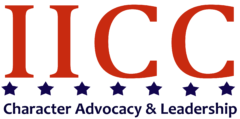We are in the process of writing an academic review paper on the existing literature on theories of leadership development is a comprehensive task that involves synthesizing a wide range of scholarly work. Here’s a structured outline to help us get started on such a review paper:
Title: Theories of Leadership Development: A Comprehensive Literature Review
Abstract:
- Summarize the key findings and contributions of various leadership development theories.
- Highlight the significance of understanding these theories for leadership education and practice.
Introduction:
- Provide an overview of the importance of leadership development in various fields.
- Present the scope and objectives of the review paper.
- Outline the structure of the paper.
Section 1: Theoretical Foundations of Leadership Development
- Discuss the historical evolution of leadership development theories.
- Examine early leadership theories and their impact on contemporary research.
- Highlight key milestones in the development of leadership development theories.
Section 2: Trait Theories of Leadership Development
- Discuss early trait theories of leadership, including the “Great Man” theory.
- Analyze contemporary trait-based approaches to leadership development.
- Explore the role of personality traits, skills, and abilities in leadership development.
- Evaluate the strengths and limitations of trait-based theories.
Section 3: Behavioral Theories of Leadership Development
- Examine behavioral theories of leadership development, including the Ohio State and University of Michigan studies.
- Discuss the focus on leadership behaviors, styles, and situational factors.
- Analyze the concept of task-oriented and people-oriented leadership.
- Explore the implications of behavioral theories for leadership development programs.
Section 4: Contingency Theories of Leadership Development
- Present contingency theories of leadership development, including Fiedler’s Contingency Model and Hersey-Blanchard’s Situational Leadership.
- Discuss how these theories consider the interaction between leaders, followers, and situations.
- Analyze the concept of adapting leadership styles to fit various situations.
- Explore the practical applications of contingency theories in leadership development.
Section 5: Transformational and Transactional Theories of Leadership Development
- Examine transformational leadership theories, including the work of James MacGregor Burns and Bernard Bass.
- Discuss the characteristics of transformational leaders and the impact on followers.
- Analyze transactional leadership theories and their focus on rewards and punishments.
- Explore the relationship between transformational and transactional leadership in development.
Section 6: Authentic Leadership and Servant Leadership Theories
- Present contemporary leadership theories, including authentic leadership and servant leadership.
- Discuss the emphasis on ethical and value-based leadership.
- Analyze the principles of authenticity, self-awareness, and serving others.
- Explore the applications of these theories in leadership development programs.
Section 7: Leadership Development in a Global Context
- Discuss the challenges and opportunities of leadership development in a globalized world.
- Examine cross-cultural perspectives on leadership development theories.
- Highlight the importance of cultural competence and adaptability in leadership development.
Section 8: Emerging Trends and Future Directions
- Discuss current research trends and emerging areas of study in leadership development.
- Consider the implications of technology, diversity, and sustainability in leadership development.
- Explore the role of mentorship, coaching, and experiential learning in future leadership development programs.
Conclusion:
- Summarize the main findings and contributions of leadership development theories.
- Highlight the enduring relevance of these theories in leadership education and practice.
- Emphasize the need for continued research and innovation in the field of leadership development.
References:
- Provide a comprehensive list of references for all sources cited in the paper.
Remember that this outline serves as a general framework, and we’ll need to conduct in-depth research, critically analyze each theory, and provide evidence-based insights in our review paper.
